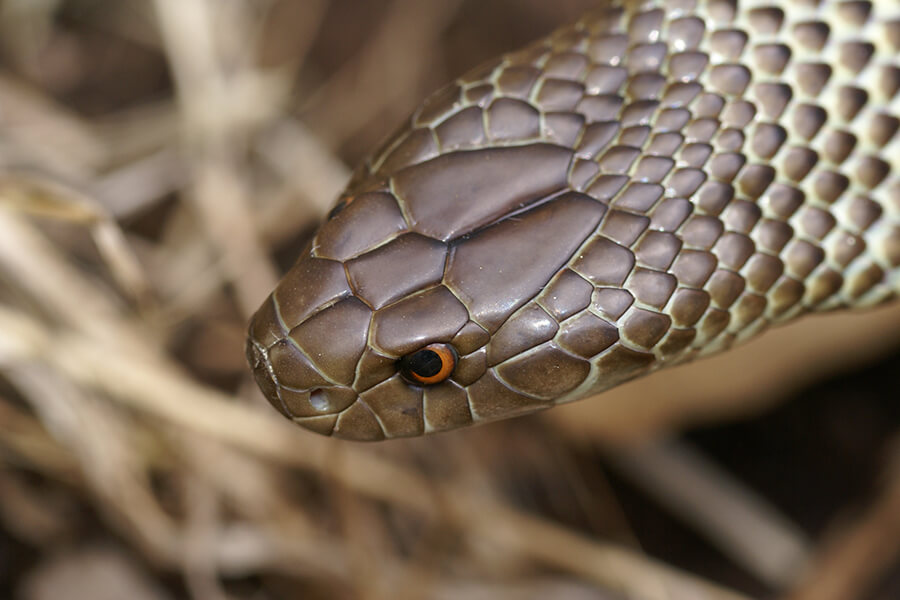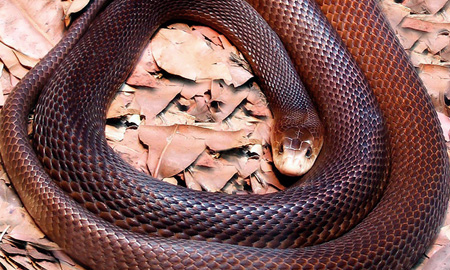Introduction
When it involves venomous snakes, Australia is home to some of one of the most interesting and unsafe species in the world. Among these, the Tiger Snake sticks out not only for its powerful venom however also for its appealing behavior. Understanding the habits of poisonous serpents like the Tiger Serpent is essential for both wildlife fanatics and those staying in areas where these serpents exist. This post delves into numerous aspects of Tiger Serpent actions, juvenile eastern small eyed snake environment, identification, safety measures, and first aid practices in case of a serpent bite.
Understanding the Habits of Venomous Snakes Like the Tiger Snake
The Tiger Snake, clinically called Notechis scutatus, is well-known for its hostile nature when endangered. These snakes show a series of actions that can be quite various from their non-venomous equivalents.
Characteristics of Tiger Snakes
The Tiger Snake is easily recognizable because of its distinct bands or red stripes that resemble a tiger's markings. They can vary in color from yellowish-brown to dark olive or black. This pigmentation offers not only as camouflage but also as a caution signal to prospective predators.
Adaptability to Environment
One impressive aspect of their behavior is their versatility to various settings. Discovered primarily in seaside areas, marshes, and marshes throughout Australia and Tasmania, they can grow in varied habitats consisting of urban areas.

Hunting Techniques
Tiger Snakes are ambush predators largely feeding on fish, frogs, and small animals. They have keen vision and an acute sense of smell which assists them in situating prey effectively.
Venom Composition
Their poison contains neurotoxins that influence the nerves, leading to paralysis or death in smaller sized pets. For people, immediate medical focus is important after a tiger snake bite as a result of its possibly lethal effects.
Natural Habitat of Tiger Snakes
Preferred Locations
Understanding where these snakes stay clarify their behavior patterns. The tiger snake habitat includes:
- Coastal regions Swamps Grasslands Urban areas with bountiful water sources
Seasonal Movements
During warmer months, Tiger Snakes are more energetic as they indulge in sunlight or search for food. In contrast, cooler months see them pulling away into hibernation sites.
Are Tiger Snakes Venomous?
Yes! The question "are tiger snakes poisonous?" typically arises amongst those not familiar with this species. Their venom is taken into consideration one of the most dangerous among all snake types worldwide.
Symptoms of a Tiger Serpent Bite
If bitten by a tiger serpent, signs and symptoms may consist of:
- Localized pain Swelling at the bite site Nausea and vomiting Sweating and confusion
Immediate medical aid is vital as without treatment bites can result in extreme wellness problems or even death.
First Aid for Serpent Bites: Quick Feedback Guide
Knowing exactly how to provide emergency treatment for a snake bite could conserve someone's life. Here's what you must do:
Step 1: Remain Calm
Keeping tranquility helps reduce heart rate which reduces venom spread.
Step 2: Paralyze the Influenced Area
Keep the affected arm or leg still and listed below heart degree if possible.
Step 3: Call Emergency Services
Always look for specialist medical help instantly after a serpent bite.
First Help for Snake Bite Set Essentials
A well-equipped snake bite first aid images snake bite first aid kit should include:
- A compression bandage Antiseptic wipes A pair of scissors An ice bag
Safety Precautions: Preventing Serpent Bites in Australia
Awareness Programs
Educating neighborhoods regarding neighborhood serpent varieties and their behaviors can significantly lower experiences causing bites.
Avoiding Harmful Areas
Staying far from long lawn during warmer months decreases contact with snakes that may be relaxing or hunting.
Common False impressions Regarding Tiger Snakes
Many individuals believe juvenile dugite snake false impressions about the actions of tiger snakes lead to unneeded worry. Right here are some explanations:
Myth 1: All Tigers Are Aggressive
Not all tiger serpents will show hostility if left undisturbed; lots of prefer leaving instead of confrontation.
Myth 2: They Chase Humans
Tiger snakes do not proactively chase human beings; they might strike when they feel endangered however will usually pull back if provided space.
Conservation Initiatives Related to Poisonous Snakes
Conservation initiatives concentrate on informing areas about securing neighborhood wildlife while lessening human-snake interactions.

Importance of Ecosystems
Understanding that venomous snakes play a crucial duty in keeping ecological equilibrium helps foster gratitude instead of fear in the direction of them.

FAQs Regarding Tiger Snakes
What must I do if I experience a tiger snake?- Maintain range and slowly pull back without unexpected movements.
- While attacks aren't extremely typical due to understanding initiatives, they still occur every year within Australia.
- Baby tiger snakes can provide full doses of venom regardless of being smaller; for this reason care is advised around them.
- They mainly take in frogs, fish, little mammals like rats, and various other reptiles.
- It's illegal in most territories without appropriate licensing due to safety problems concerning their venom.
- Wear tough boots and remain on marked trails; look prior to placing hands or feet right into concealed areas like rocks or logs.
Conclusion
Understanding the actions of poisonous snakes like the Tiger Serpent not only enhances our knowledge but likewise advertises safety and security understanding amongst those living near their habitats. From acknowledging their qualities, understanding first aid methods complying with a bite, through engaging preservation efforts-- every element plays an important duty in fostering coexistence with these interesting reptiles while respecting their location within our ecosystem.
As we deepen our understanding via education and experience, we add favorably toward making certain both human safety and security and wildlife conservation-- profiting all parties involved!